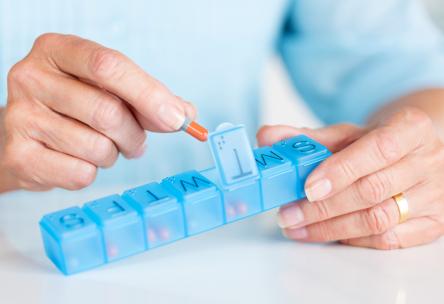Know the facts about how your prescriptions help you breathe better

Taking medications exactly as directed can improve COPD symptoms, such as shortness of breath, coughing, and wheezing. The type of medications your doctor prescribes you depend on your symptoms and how often they flare up. If you are concerned about cost, ask about lower-priced versions. Here are a couple of the treatments that are most often used to help manage COPD.
Bronchodilators
Bronchodilators are used to control or reduce the effects of COPD. These drugs relax the muscles around your airways, which opens up the airways and eases breathing. There are two types of bronchodilators: short-acting and long-acting. Short-acting bronchodilators are used when symptoms first appear. They work for about four to six hours. Long-acting bronchodilators are generally taken every day to help prevent breathing problems from starting. They work for about 12 hours or more.
Most bronchodilators are taken using an inhaler, a device that allows the medicine to be delivered into your lungs. Your health care team will show you the right way to use your inhaler. Bronchodilators can also be given orally.
Inhaled corticosteroids
If your COPD is more severe or you often have symptom flare-ups, your doctor may prescribe an inhaled corticosteroid. Steroids help reduce inflammation in the airways and can improve lung function. Regular use can reduce the frequency of flare-ups. Your doctor might also prescribe a combination of an inhaled corticosteroid and bronchodilator.
Get the most out of your medicine
Taking the right medicine at the right time will help you keep your COPD under control. Stick to a schedule to keep symptoms from flaring up, and to avoid a trip to the hospital:
- Make a plan to take your medicine at set times each day, such as after certain meals or while the coffee is brewing. Write your schedule on a calendar or in a notebook, or use a smartphone app.
- Use a seven-day pillbox with sections for both morning and evening. Set an alarm on your watch or smartphone to remind you to take your medicine.
- Set a reminder to order your pills or inhaler before they run out.
- If you feel side effects from your medicine, contact your doctor or pharmacist.
Photo: iStock


